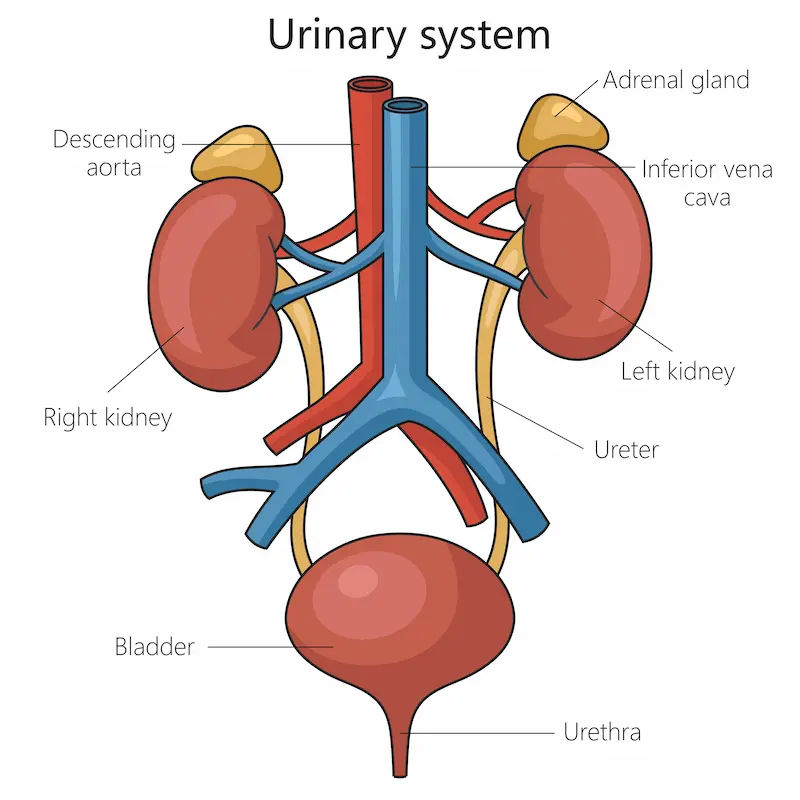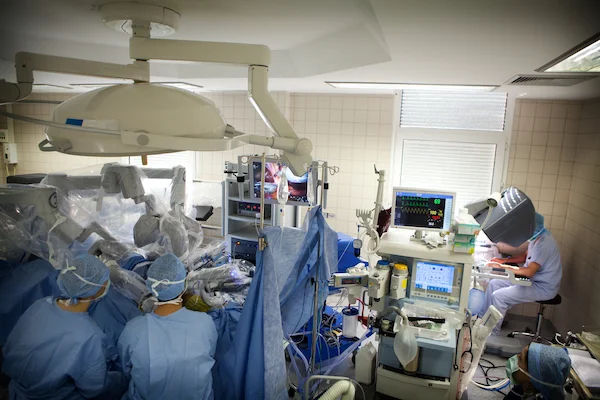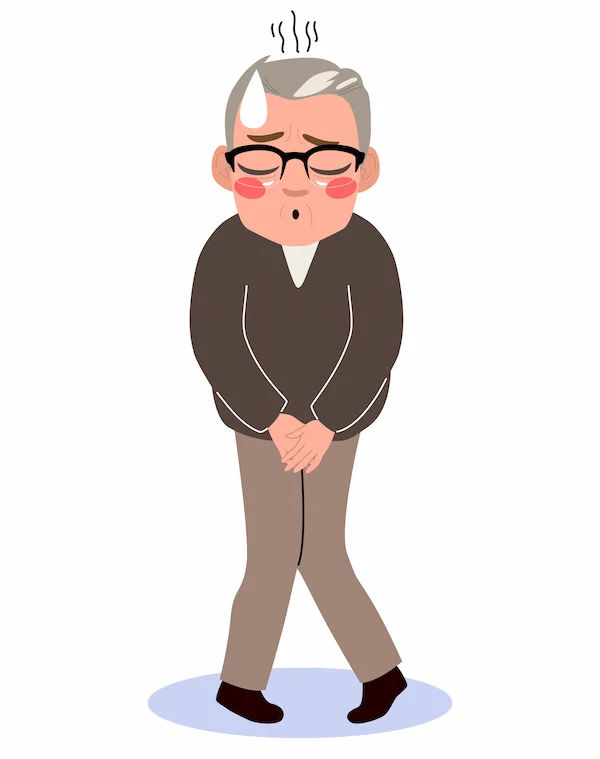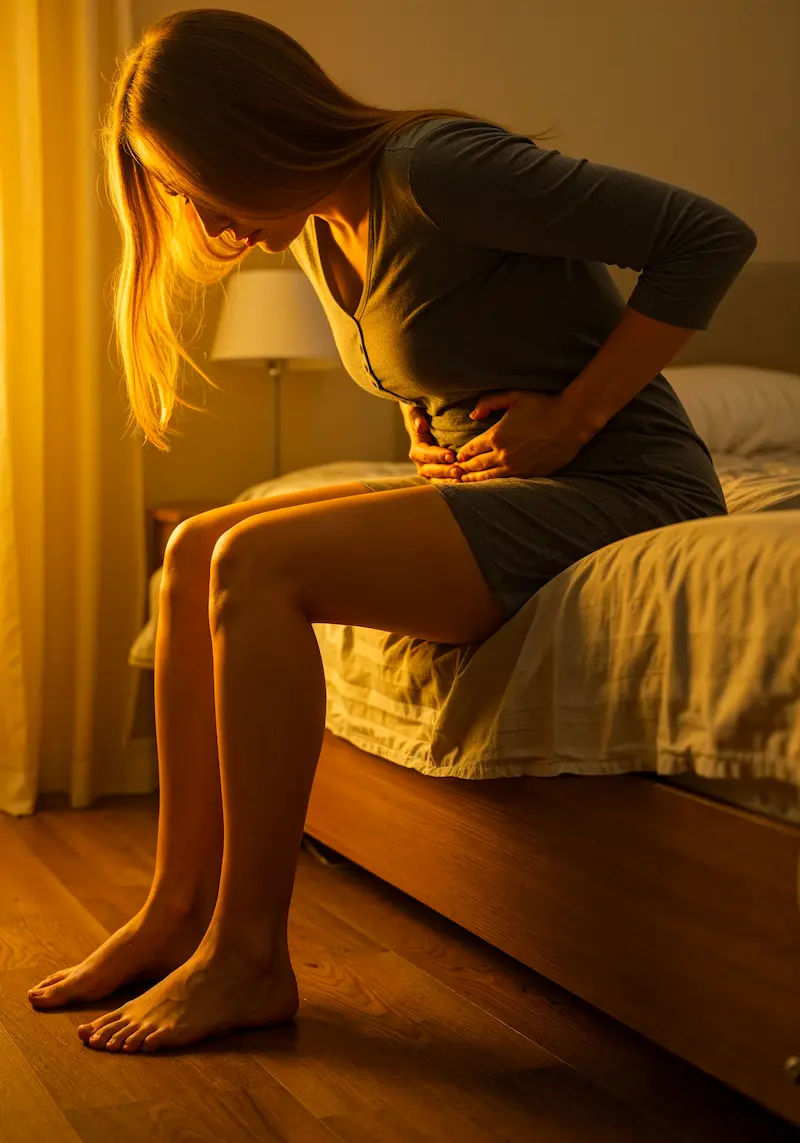Guide to What Are Common Urinary Problems Elderly
Explore common urinary problems in the elderly, including causes, symptoms, and treatment options, to support better health and quality of life.


As we age, our bodies undergo a multitude of changes, and the urinary system is no exception. What many dismiss as an inevitable part of getting older is often a treatable medical condition. Common urinary problems in the elderly range from inconvenient leaks to serious infections, significantly impacting dignity, independence, and overall quality of life. Understanding these issues is the first step toward effective management and reclaiming control. This comprehensive guide will walk you through the most frequent urinary ailments affecting older adults, from their causes and symptoms to modern diagnosis, treatment options, and practical prevention strategies. Whether you're experiencing these changes yourself or caring for a loved one, knowledge is power in navigating the path to better urinary health.
Why Ageing Increases Urinary Tract Risks?
The likelihood of encountering urinary issues increases with age due to natural physiological changes. It's not just one factor but a combination that contributes to these common urinary problems.
Natural Changes in the Bladder and Kidneys
The bladder muscle can weaken over time, reducing its capacity to store urine and making it harder to empty
completely. The urethra (the tube that carries urine out of the body) can also undergo changes; in women, declining estrogen levels after menopause can cause tissues to become thinner and weaker, while in men, the prostate gland often enlarges. The kidneys may also become less efficient at concentrating urine, leading to more urine production at night (nocturia).
The Role of Other Health Conditions and Medications
Ageing often comes with other health concerns like diabetes, heart disease, or neurological conditions (e.g., Parkinson's or a history of stroke), which can directly interfere with bladder nerve function. Furthermore, medications commonly prescribed to seniors, such as diuretics ("water pills" for blood pressure), sedatives, and certain antidepressants, can contribute to incontinence or urinary retention as a side effect.
Urinary Tract Infections (UTIs) in Older Adults
UTIs are one of the most common infections in the elderly, particularly among women. They occur when bacteria,
often from the skin or rectum, enter the urethra and infect the urinary tract.
Recognising UTI Symptoms in the Elderly (Atypical Signs)
While classic symptoms include a burning sensation during urination, a strong urge to go frequently, and cloudy or
strong-smelling urine, older adults may present differently. UTI symptoms in the elderly often include atypical signs like sudden confusion, agitation, hallucinations, dizziness, falls, or even just general weakness and fatigue. This makes it crucial to be vigilant, as a UTI can be mistaken for dementia or other age-related issues.
Diagnosis and Treatment for UTIs
Diagnosis typically involves a urine analysis and culture to identify the bacteria. Treatment for UTIs in seniors usually involves a course of antibiotics. It is vital to complete the entire prescription and to stay well-hydrated. If symptoms persist beyond two weeks, consult a doctor online with Apollo24|7 for further evaluation and to rule out other complications.
Consult Top Specialists
Urinary Incontinence: Types and Management
Urinary incontinence in elderly individuals is not a normal part of aging but is a common and treatable condition. It refers to the involuntary leakage of urine. There are several main types:
Stress Incontinence
This occurs when physical pressure ("stress") on the bladder from coughing, sneezing, laughing, or exercising causes leakage. It's most common in women due to weakened pelvic floor muscles from childbirth or menopause.
Urge Incontinence (Overactive Bladder)
This is characterized by a sudden, intense urge to urinate followed by an involuntary loss of urine. People with OAB
often feel like they can't make it to the bathroom in time.
Overflow Incontinence
This happens when the bladder doesn't empty completely, leading to frequent dribbling or leakage because it's
constantly full. It can be caused by a blockage (like an enlarged prostate) or nerve damage.
Functional Incontinence
Here, a physical or mental impairment (like severe arthritis or dementia) prevents a person from reaching the toilet in time, even though their urinary system may be functioning normally.
Benign Prostatic Hyperplasia (BPH) - Enlarged Prostate
BPH is an extremely common urinary problem in elderly men. It involves the non-cancerous enlargement of the
prostate gland, which surrounds the urethra. As it grows, it can squeeze the urethra and obstruct the flow of urine.
How BPH Affects Urination in Men?
Symptoms include a weak urine stream, difficulty starting urination, dribbling after urination in elderly men, a feeling of incomplete emptying, and most notably, frequent urination at night (nocturia), which severely disrupts sleep.
Modern Treatment Options for BPH
Treatment for an enlarged prostate ranges from lifestyle changes and medications that relax the prostate muscles or shrink the gland to minimally invasive procedures and surgery for more severe cases. If you experience these symptoms, a consultation with a urologist is essential.
Overactive Bladder (OAB) Syndrome
Overactive Bladder syndrome is a specific diagnosis characterized by a group of symptoms, including urinary urgency (a sudden need to urinate that's difficult to defer), with or without urgency incontinence, usually accompanied by frequency and nocturia. It's caused by involuntary contractions of the bladder muscle. Management of OAB in seniors often involves a combination of bladder training, scheduled toilet trips, fluid management, pelvic floor exercises, and medications to calm the bladder.
Diagnosis: How Doctors Identify Urinary Problems
Getting an accurate diagnosis is key to effective treatment. A doctor will typically start with:
Medical History and Physical Exam
This includes discussing symptoms, fluid intake, medications, and overall health. A physical exam may include a pelvic exam for women or a rectal exam to check the prostate in men.
Common Tests and Procedures
- Urinalysis: Checks for infection, blood, or other abnormalities.
- Bladder Diary: Tracking fluid intake, urination times, and leakage episodes over several days.
- Postvoid Residual Measurement: Using a ultrasound to see how much urine is left in the bladder after urination.
- Urodynamic Testing: Measures pressure and volume in the bladder to assess how well it's functioning.
Apollo24|7 offers convenient home collection for tests like urinalysis, making the initial diagnostic steps easier for
homebound seniors.
Treatment and Management Strategies
The approach is always personalized but can include:
Lifestyle Modifications and Bladder Training
This is often the first line of defense. It includes managing fluid intake (avoiding irritants like caffeine and alcohol),
maintaining a healthy weight, and establishing a regular bathroom schedule to "retrain" the bladder.
Pelvic Floor Muscle (Kegel) Exercises
These exercises strengthen the muscles that control urination and are highly effective for stress and urge incontinence. A doctor or physical therapist can provide guidance on performing them correctly.
Medications and Medical Procedures
Various medications can relax bladder muscles, shrink the prostate, or topically replenish estrogen. For cases that don't respond to conservative treatment, options like Botox injections into the bladder, nerve stimulators, or surgery can be highly effective.
Prevention Tips for Maintaining Urinary Health
- Stay hydrated with water, but limit intake before bedtime.
- Avoid bladder irritants: caffeine, alcohol, acidic foods, and artificial sweeteners.
- Practice pelvic floor exercises regularly.
- Maintain a healthy weight to reduce pressure on the bladder.
- Prevent constipation, as it can put pressure on the bladder.
- Practice good toilet habits: take your time to empty completely and don't "hold it" for too long.
Conclusion
Navigating common urinary problems in the elderly can feel overwhelming, but it's important to remember that these conditions are highly manageable. From urinary tract infections and incontinence to an enlarged prostate, effective solutions exist. The journey begins with breaking the silence and speaking openly with a healthcare professional. By understanding the causes, recognizing the symptoms, and exploring the wide range of available treatments—from simple lifestyle adjustments to medical interventions—seniors can significantly improve their quality of life and maintain their independence. Don't accept urinary problems as a normal part of aging. Take the first step today by discussing your symptoms with a doctor. If your condition does not improve after trying these methods, book a physical visit to a doctor with Apollo24|7 to create a personalised plan for optimal urinary health.
Consult Top Specialists
Consult Top Specialists
Dr. J Chaithanya
Urologist
6 Years • MBBS MS GENERAL SURGERY MCH UROLOGY
Bengaluru
Apollo Medical Center, Marathahalli, Bengaluru

Dr. Kunal Kumar Mehar
Urologist
10 Years • Mbbs, Ms, Mch
Bengaluru
Apollo Medical Center, Marathahalli, Bengaluru

Dr. Gaurab Dasgupta
Urologist
14 Years • MBBS, MS General Surgery, MCH Urology, FMAS
Kolkata
MCR SUPER SPECIALITY POLY CLINIC & PATHOLOGY, Kolkata

Dr. Dhruv B. Patel
Urologist
12 Years • MBBS, MS, DrNB (Urology - IKDRC, Ahmedabad)
Ahmedabad
Apollo Hospitals Gandhinagar, Ahmedabad
(25+ Patients)

Dr Anupam Sharma
Urologist
18 Years • MBBS, MS(Gen Surgery), DNB (Urology)
Delhi
Apollo Hospitals Indraprastha, Delhi
(25+ Patients)
Consult Top Specialists
Dr. J Chaithanya
Urologist
6 Years • MBBS MS GENERAL SURGERY MCH UROLOGY
Bengaluru
Apollo Medical Center, Marathahalli, Bengaluru

Dr. Kunal Kumar Mehar
Urologist
10 Years • Mbbs, Ms, Mch
Bengaluru
Apollo Medical Center, Marathahalli, Bengaluru

Dr. Gaurab Dasgupta
Urologist
14 Years • MBBS, MS General Surgery, MCH Urology, FMAS
Kolkata
MCR SUPER SPECIALITY POLY CLINIC & PATHOLOGY, Kolkata

Dr. Dhruv B. Patel
Urologist
12 Years • MBBS, MS, DrNB (Urology - IKDRC, Ahmedabad)
Ahmedabad
Apollo Hospitals Gandhinagar, Ahmedabad
(25+ Patients)

Dr Anupam Sharma
Urologist
18 Years • MBBS, MS(Gen Surgery), DNB (Urology)
Delhi
Apollo Hospitals Indraprastha, Delhi
(25+ Patients)
More articles from Urology Consultation
Frequently Asked Questions
1. Is urinary incontinence a normal part of aging?
No, urinary incontinence is not an inevitable result of aging. It is a medical condition with underlying causes that are often treatable or manageable with the right approach, such as pelvic floor therapy, medication, or lifestyle changes.
2. What's the difference between a UTI and incontinence?
A UTI is an infection causing inflammation and irritation, leading to urgency and pain. Incontinence is the involuntary leakage of urine. However, a UTI can temporarily worsen incontinence symptoms. A doctor can perform a simple urinalysis to distinguish between them.
3. How can I help an elderly parent who is embarrassed about their bladder problems?
Approach the topic with empathy and reassurance. Normalize the condition by stating how common it is. Focus on solutions and offer to help them make a doctor's appointment for treatment options that can greatly improve their situation. You could suggest a discreet online consultation with a doctor from Apollo24|7 as a first step.
4. Are there any home remedies for preventing UTIs in the elderly?
Staying well-hydrated with water is key. Some evidence supports the use of cranberry products (juice or supplements) to prevent bacteria from adhering to the bladder wall. However, they are not a treatment for an active infection and should not replace medical advice.
5. What are the best products for managing urinary incontinence?
A wide range of products is available, from absorbent pads and protective underwear to more secure external catheters for men. The best choice depends on the type and severity of incontinence. A healthcare provider can recommend products that fit well, protect skin, and preserve dignity.



